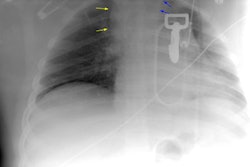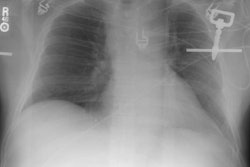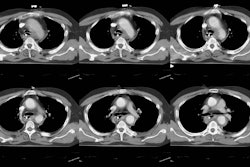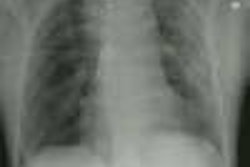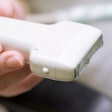J Nucl Med 1998 Sep;39(9):1551-4
Intermediate and long-term side effects of high-dose radioiodine therapy for
thyroid carcinoma.
Alexander C, Bader JB, Schaefer A, Finke C, Kirsch CM.
The present investigation is an evaluation of intermediate and long-term side
effects in patients after high-dose radioiodine treatment due to differentiated
thyroid carcinoma. METHODS: A total of 203 patients were interviewed using a
standardized questionnaire. RESULTS: After radioiodine treatment, 76.8% of the
patients reported intermediate (from discharge up to 3 mo) or long-term (more
than 3 mo after treatment) complaints, and 61.1% reported long-term side
effects. Nonstochastic side effects included sialoadenitis, which occurred in
33.0% of cases, and 27.1% of patients suffered from a transient loss of taste or
smell. More than 1 yr after the last radioiodine application, 42.9% of patients
suffered from reduced salivary gland function. Complete xerostomia occurred in
4.4% of patients. Hematological abnormalities were found in 9 patients. In 28.1%
of patients a transient episode of alopecia was reported. In 22.7% of patients
chronic or recurrent conjunctivitis was reported, and 4 patients underwent
dacryocystorhinostomy; 13.8% of patients suffered from an increased frequency of
influenza, but 3.4% reported a reduced occurrence of such infections. For
sialoadenitis, the loss of taste/smell and dry mouth, the dependence on
accumulated activity was significant. CONCLUSION: Severe long-term side effects
are rare after high-dose radioiodine treatment. Moderate side effects are
common. The side effects are commonly the result of radiation damage to the
salivary glands. The frequency of such complaints advocates regular protection
of the salivary glands.




